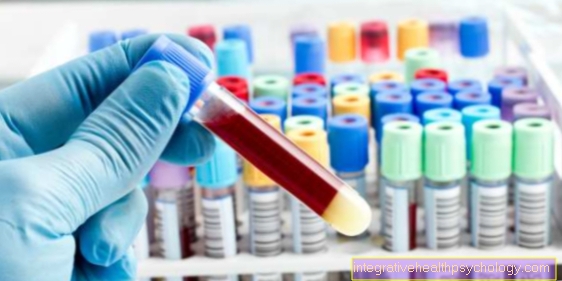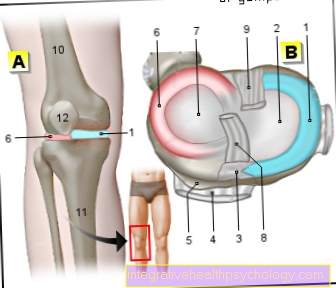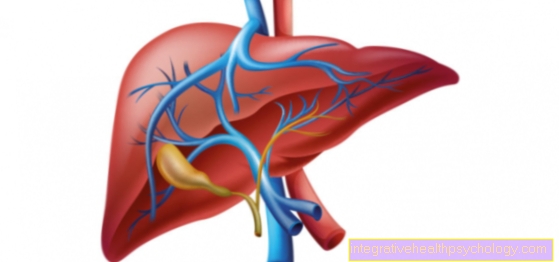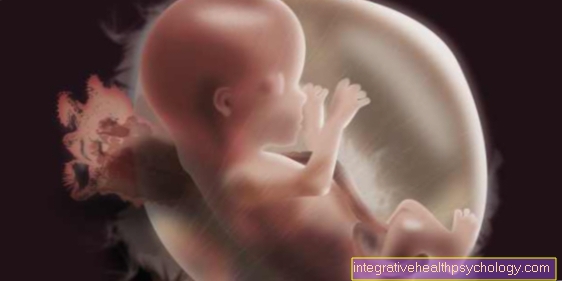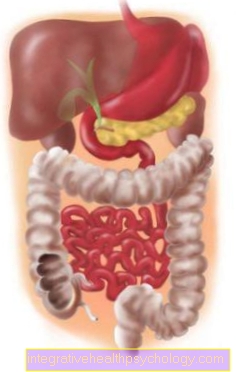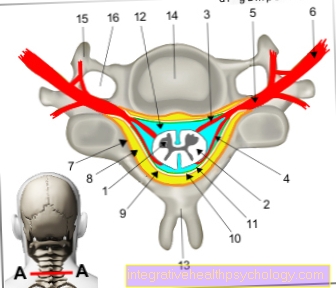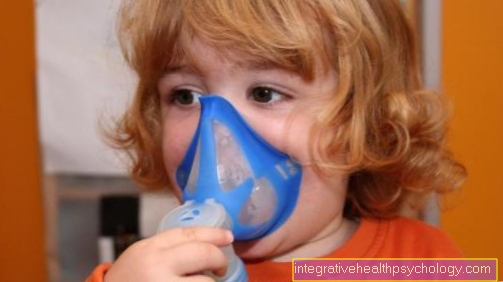Norovirus Infection During Pregnancy - How Dangerous Is It?
Definition - What Does Norovirus Infection Mean During Pregnancy?
Noroviruses are pathogens that are widespread worldwide and often cause gastrointestinal infections, especially in the colder months of the year (October to March). Both children and adults can get so-called gastroenteritis, i.e. gastrointestinal flu caused by noroviruses. The transmission takes place from person to person. A norovirus infection is not significantly different during pregnancy than in non-pregnant women. However, since the body is already additionally challenged by the existing pregnancy, the disease can be particularly exhausting for pregnant women and some essential measures must be observed in order not to endanger the well-being of the child.

What are the known dangers for my baby?
If a pregnant woman becomes infected with noroviruses, this initially creates worries and fears. That is all too understandable, but it is generally not necessary. The noroviruses do not pose a direct risk to the unborn child. This means that the infection cannot pass onto the child. There is therefore no risk that the unborn child will become infected with the virus and become ill itself. However, there are indirect dangers to the unborn child that can arise from the fact that the pregnant woman's body is stressed by the norovirus infection.
What are the indirect dangers for my child?
If a pregnant woman becomes infected with noroviruses, there is no direct danger to the child, as the viruses do not pass to the child. However, there are indirect dangers. A pregnant woman's body has more tasks to perform than that of a non-pregnant woman. An infection - no matter what kind - can lead to the body being overwhelmed more quickly. An infection with noroviruses leads to gastrointestinal complaints, which in most cases are noticeable as severe vomiting and diarrhea. For every person, repeated vomiting and diarrhea carry the risk of developing a lack of fluids (dehydration / desiccosis). This risk is even higher with a pregnant woman, as the unborn child must also be supplied with sufficient fluids and nutrients. The greatest risk for a pregnant woman who has become infected with noroviruses is the lack of fluids, which can have a negative effect on the unborn child.
These symptoms suggest norovirus infection during pregnancy
Symptoms of a norovirus infection during pregnancy are hardly different from symptoms in non-pregnant women. The infection usually begins very acutely with severe malaise, abdominal pain, nausea, and severe vomiting and diarrhea. Vomiting and diarrhea occur together in most patients, but more rarely just vomiting or just diarrhea can occur. Often there are also accompanying symptoms such as headache and body aches. A slight fever can also occur. Those affected usually feel significantly weakened.
For more information, see: Symptoms of Norovirus Infection
Are there any tests that detect the norovirus?
There are various laboratory tests that make it possible to detect an infection with noroviruses. For all testing procedures, a sample of vomit or diarrhea from the sick person must be taken and sent to a laboratory. How long such proof takes depends on the type of test procedure.
Treatment of norovirus infection during pregnancy
There is no specific treatment for norovirus infection, including during pregnancy. There is therefore a purely symptomatic therapy. This means that the symptoms are alleviated in the best possible way.
The most important thing in the case of a norovirus infection during pregnancy is to compensate for the often pronounced lack of fluids, which is caused by the severe loss of fluid through vomiting and diarrhea. The daily amount of drink required increases dramatically. Usually a drinking amount of 1.5-2 liters per day is recommended. If the body now also loses fluid due to vomiting and diarrhea, all the fluid that is lost has to be replaced. The necessary daily fluid intake can quickly increase to 4-5 liters. The risk of a lack of fluids (dehydration / desiccosis) is particularly high in pregnant women, children and elderly patients. In some cases, therefore, inpatient treatment must be considered in these patients. During this, the fluid can be supplied via the vein in the form of infusions. The advantage here is that the infusion solutions contain not only water but also the electrolytes contained in the blood such as sodium, potassium, calcium, magnesium and chloride, which are also lost with vomiting and diarrhea. Infusion therapy can therefore be useful, especially in the case of pronounced fluid loss and patients at increased risk - this also includes pregnant women.
Occasionally, anti-emetics, i.e. agents to reduce nausea or medication such as paracetamol against malaise and body aches, are used. However, especially during pregnancy, the use of any kind of medication should generally be considered rather critically and discussed beforehand with the treating doctor or gynecologist. There is usually no appetite whatsoever during an acute norovirus infection. Nevertheless, it is important to eat at least some food, especially during pregnancy. Vegetable broth, gruel soup and rusks are ideal here.
Read more at: This is how the norovirus infection is treated
Duration of norovirus infection
A norovirus infection during pregnancy is usually short and violent, as is the case with non-pregnant women. The symptoms usually last for one to a maximum of 3 days. Especially in pregnant women, however, even after the acute symptoms such as diarrhea and vomiting have subsided, a feeling of weakness with increased tiredness and weakness can persist for a few days.
For more information, see: Duration of a norovirus disease
I can do this to avoid getting infected
Noroviruses are only transmitted from person to person. Namely by the fact that germs from the vomit or the stool of the sick person are transferred to the still healthy. Hygiene measures are therefore of paramount importance in order to avoid infection. If possible, sick people should not come into close contact with other people. If contact cannot be avoided, contact persons who are still healthy, especially pregnant women, should protect themselves with disposable gowns, face masks and gloves. In addition, hands should be washed and disinfected with a suitable disinfectant after each contact with a sick person. Especially if someone in the same household is ill, you should be careful not to use the same toilet if possible. If this is not possible because, for example, only one toilet is available, strict hygiene with suitable cleaning and disinfecting agents is necessary after each use by the sick person. It should also be noted that an infection with noroviruses is possible up to 48 hours after the symptoms (diarrhea and vomiting) have subsided.
For more information, see: How is the norovirus transmitted?



